CHAPTER 3
男の子の名前はサカ。両親が出会った大阪城にちなんで名付けられました。親として気がかりなのは、サカの成長です。特に、学校に入ったら、サカがクラスで唯一のムスリムなのではないかと心配しています。サカが育つ環境は、インドネシアでの文化や習慣、宗教とは全然違います。「私たちはサカが必要とするものを与えることや宗教について伝えるために最善を尽くします」とディニは語りました。彼らはサカが将来聞いてくることに応えられるよう、今から備えているそうです。
The name of the boy is Saka, named after the place of their parent’s meeting, Osaka Castle. As parents, they indeed worry about Saka’s growth, especially about how Saka will probably be the only Muslim in his class once he enters school. Saka’s childhood in Japan will be miles apart from theirs in Indonesia, especially in tradition, culture, and religion. “We will try our best to provide all his needs and explanation about our religion”, Dini explained. They are now preparing for all the questions that Saka may ask in the future.
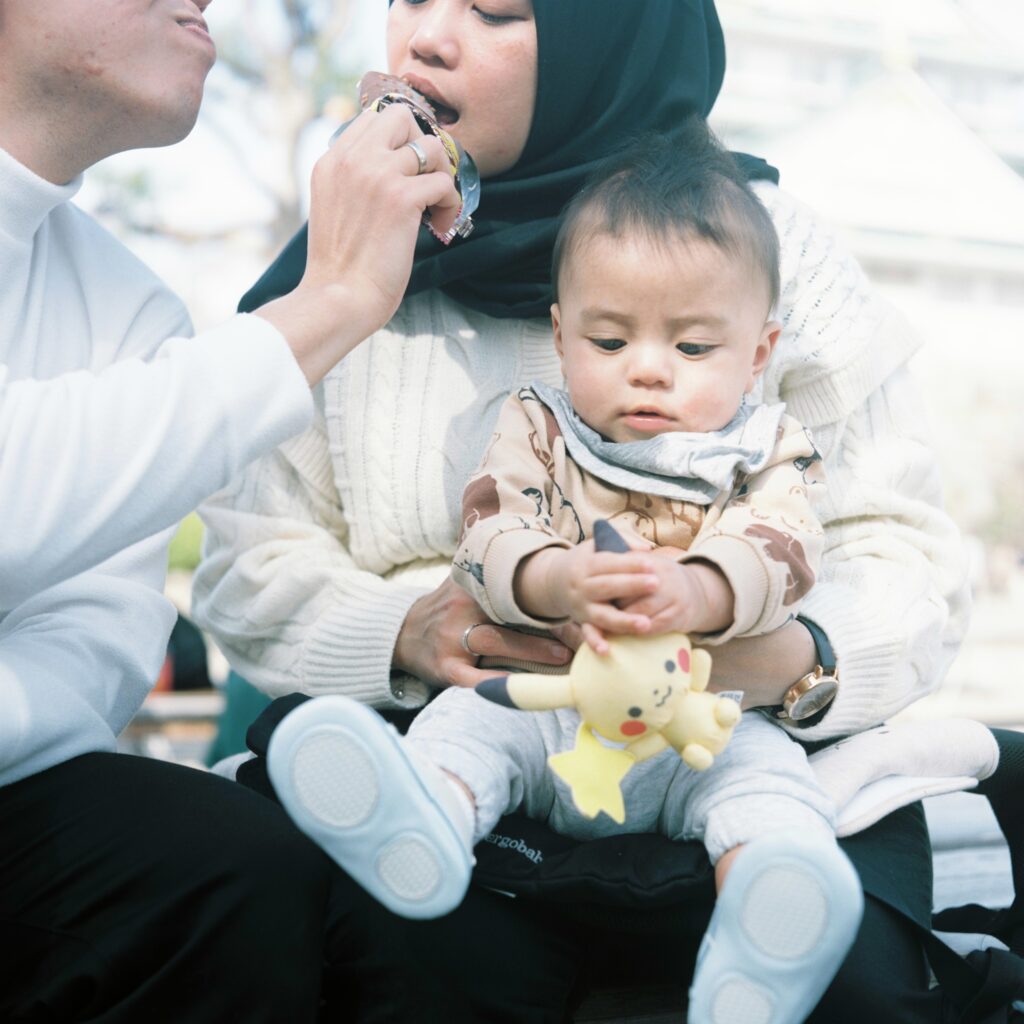
Saka playing with a Pikachu doll
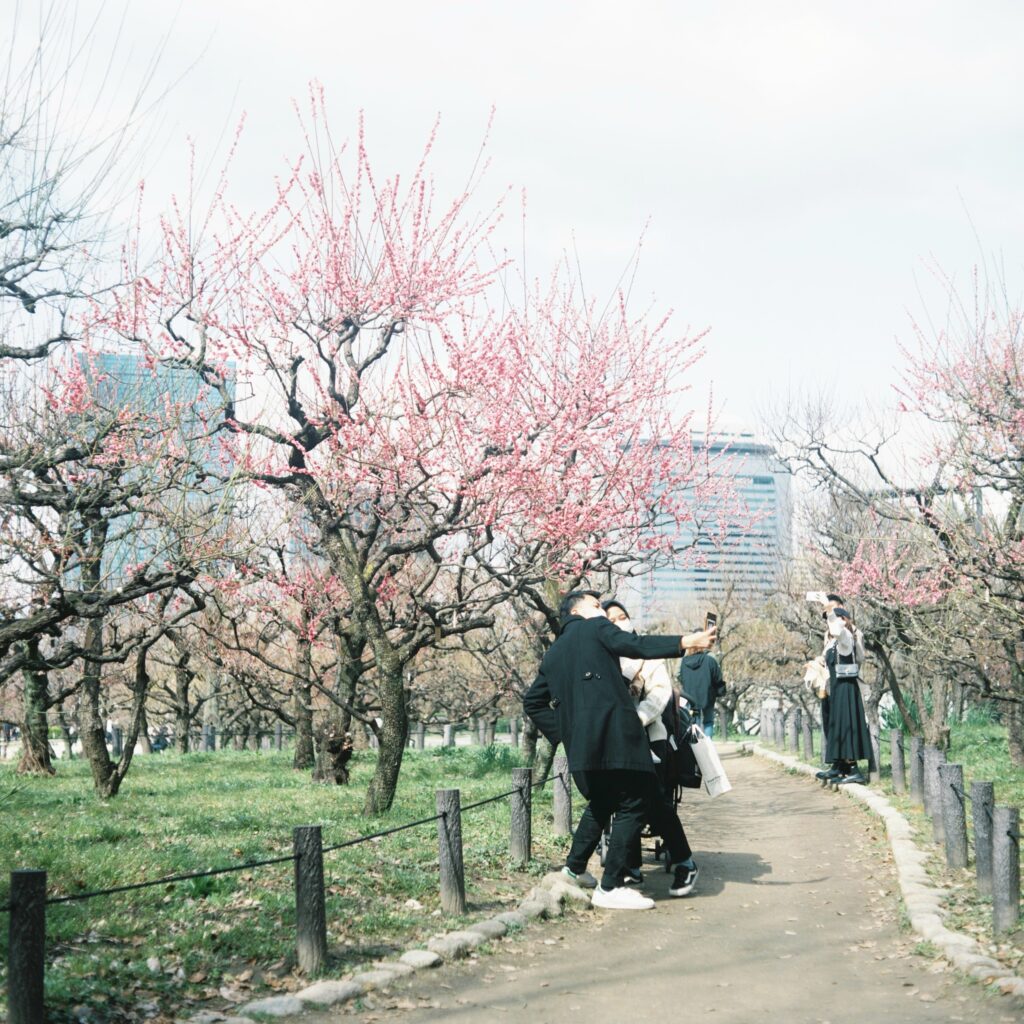
Taking a selfie with plum blossoms
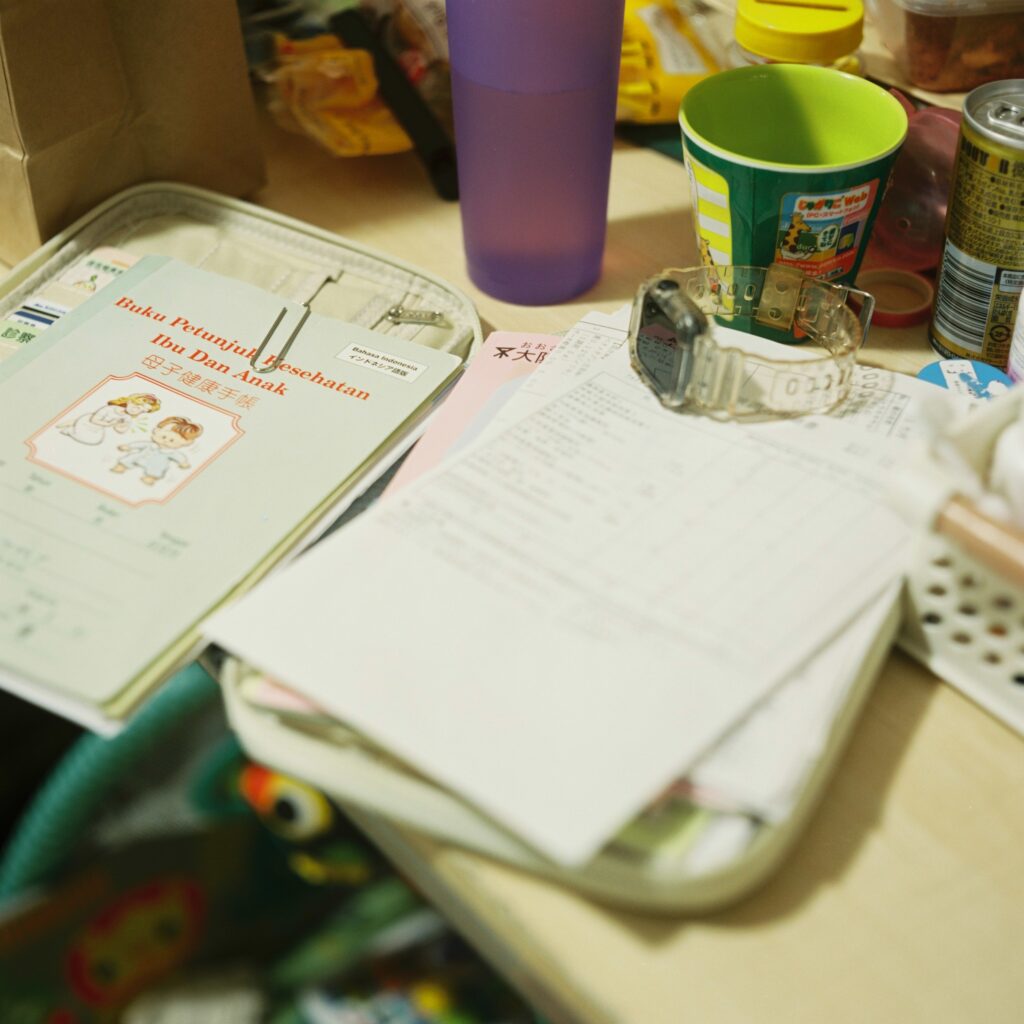
Saka’s health care documents
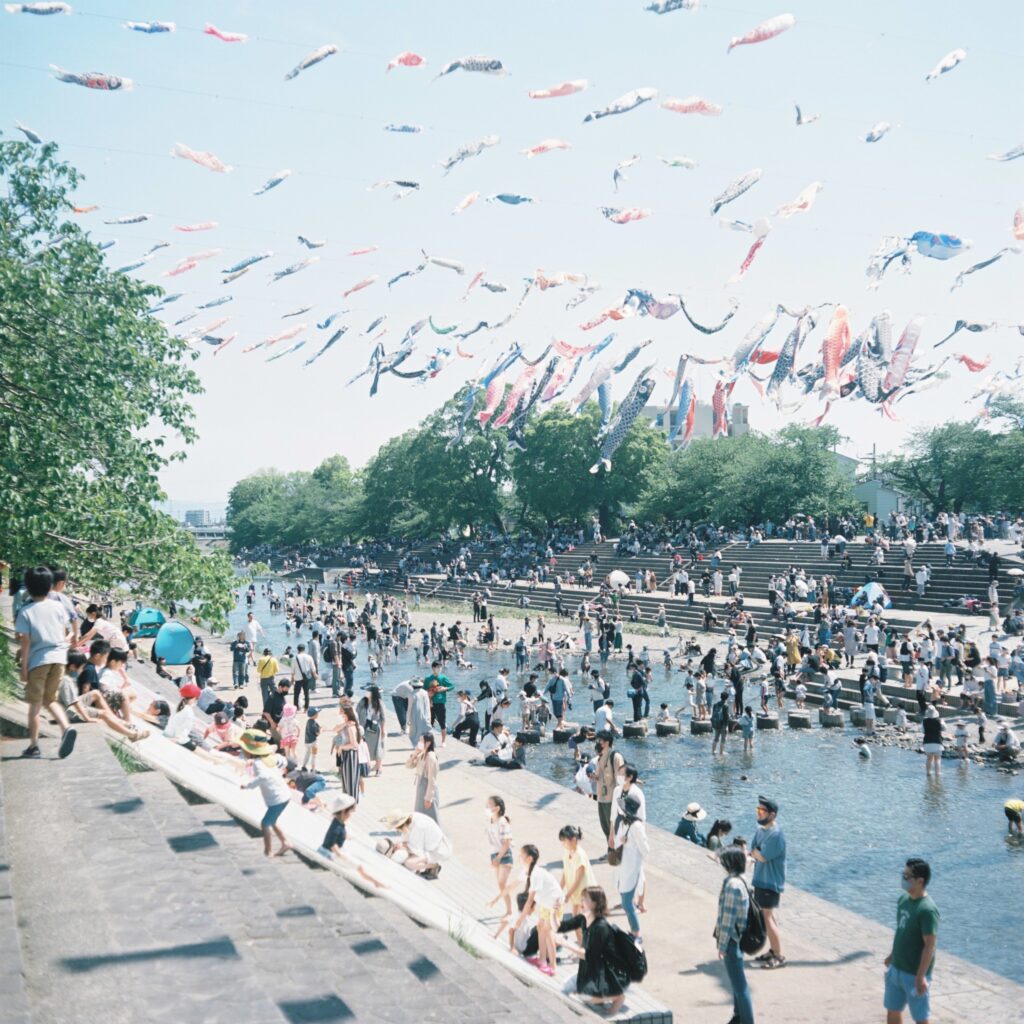
Koinobori in Takatsuki, Osaka
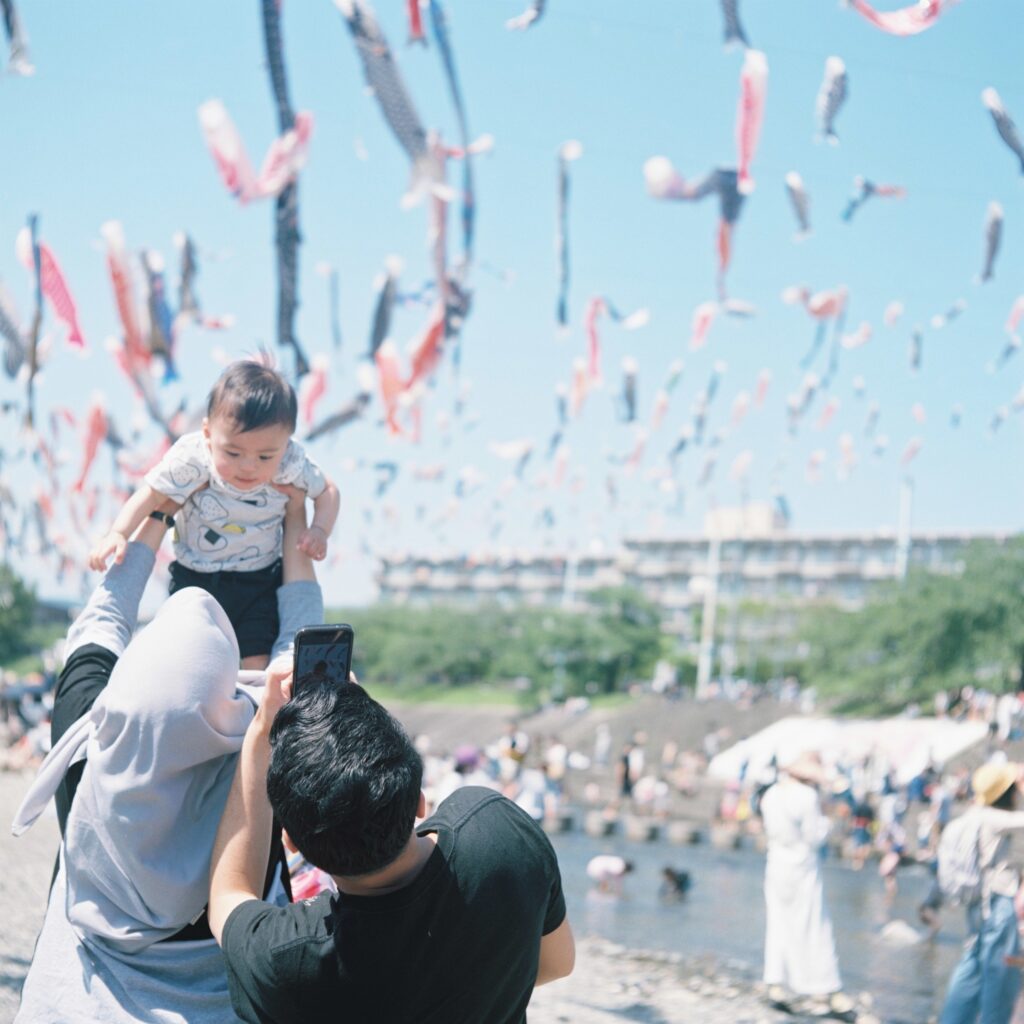
Taking a photo of Saka for his grandparents
日本は清潔で、公共施設もきれいなので、ウィチャックとディニは大阪での暮らしが快適で素晴らしいと感じています。二人にとって大阪はどんなところかと尋ねると、ディニが「大阪は二人の出会いの地」と答え、ウィチャックも、「大阪は自分を見つけ、作ってきた出発の地だ」とそれに頷きました。そして「大阪は人や雰囲気がメダン(彼の故郷)に似ている」とも言いました。
The clean culture of Japan and its public facilities makes Wicak and Dini feel comfortable and grateful for living in Osaka. When asked what Osaka means to them, Dini reminisced “Osaka is the meeting point”. Wicak agreed, saying that Osaka was his own starting point where he shaped and found himself. “I found Osaka similar to Medan (Wicak’s hometown); the people and the vibe”, he added.
日本が外国人の労働者を必要とするようになった今、彼らは特に市役所や病院などの公共の場で、英語の通訳やサポートがさらに増えて欲しいと願っています。
As Japan needs more foreign workers, they hope a culture of inclusivity grows more prominent in Japanese society, such as providing English translations and assistance in public places, especially in city halls and hospitals.
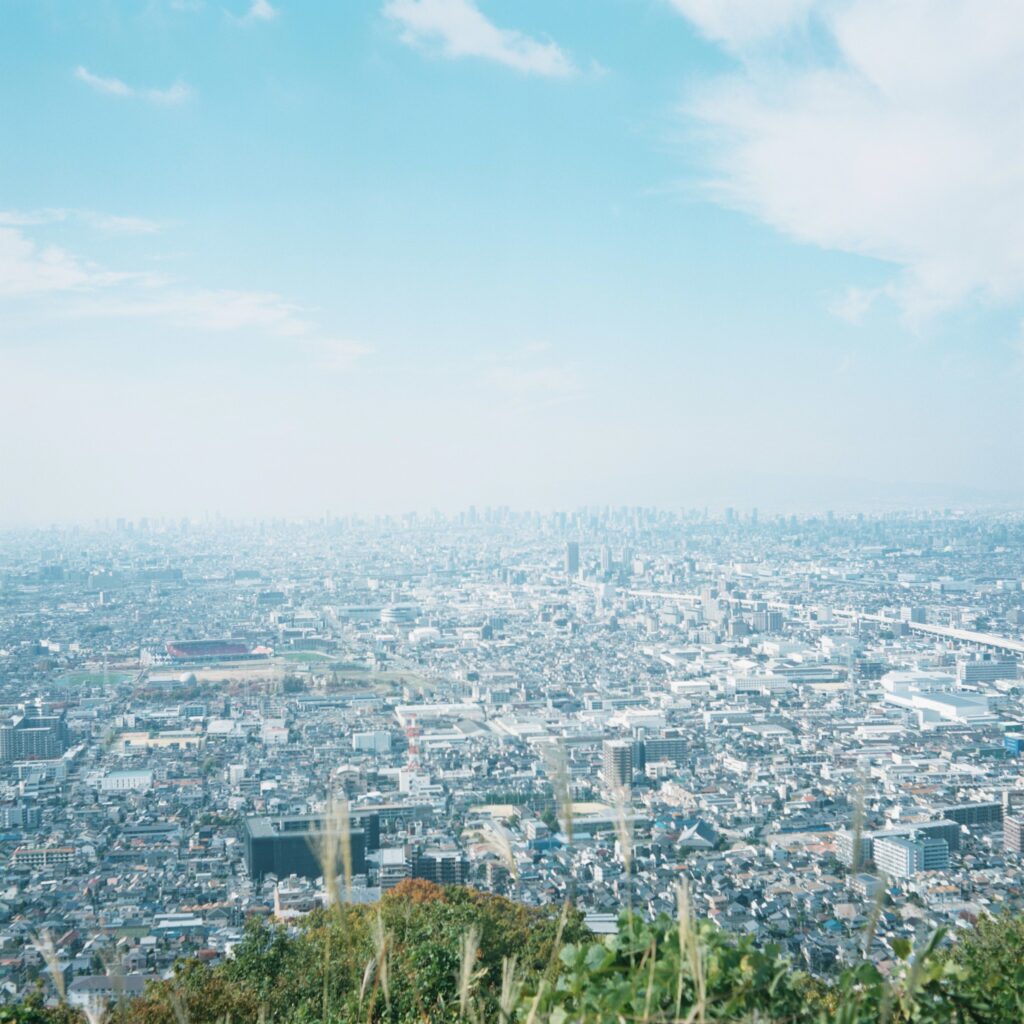
Part of Osaka seen from a hill
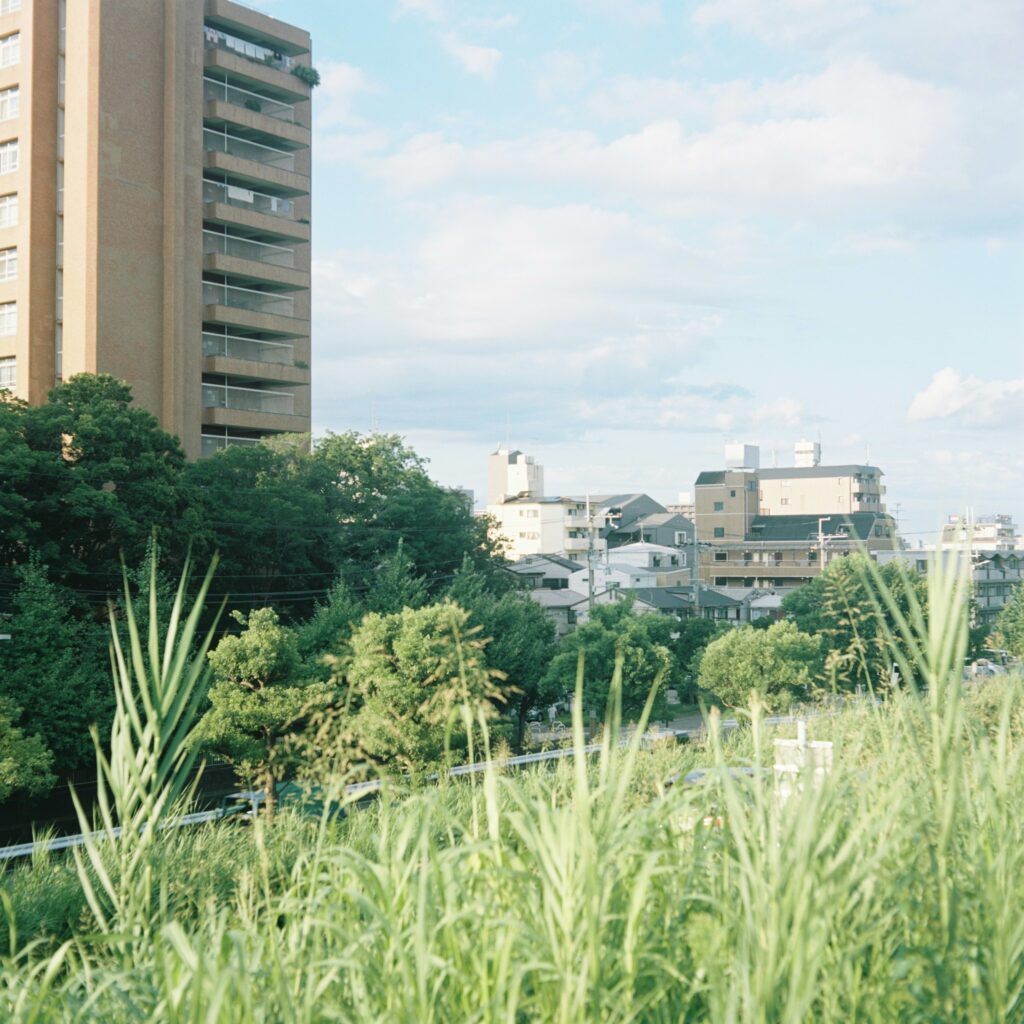
Common residences in Osaka
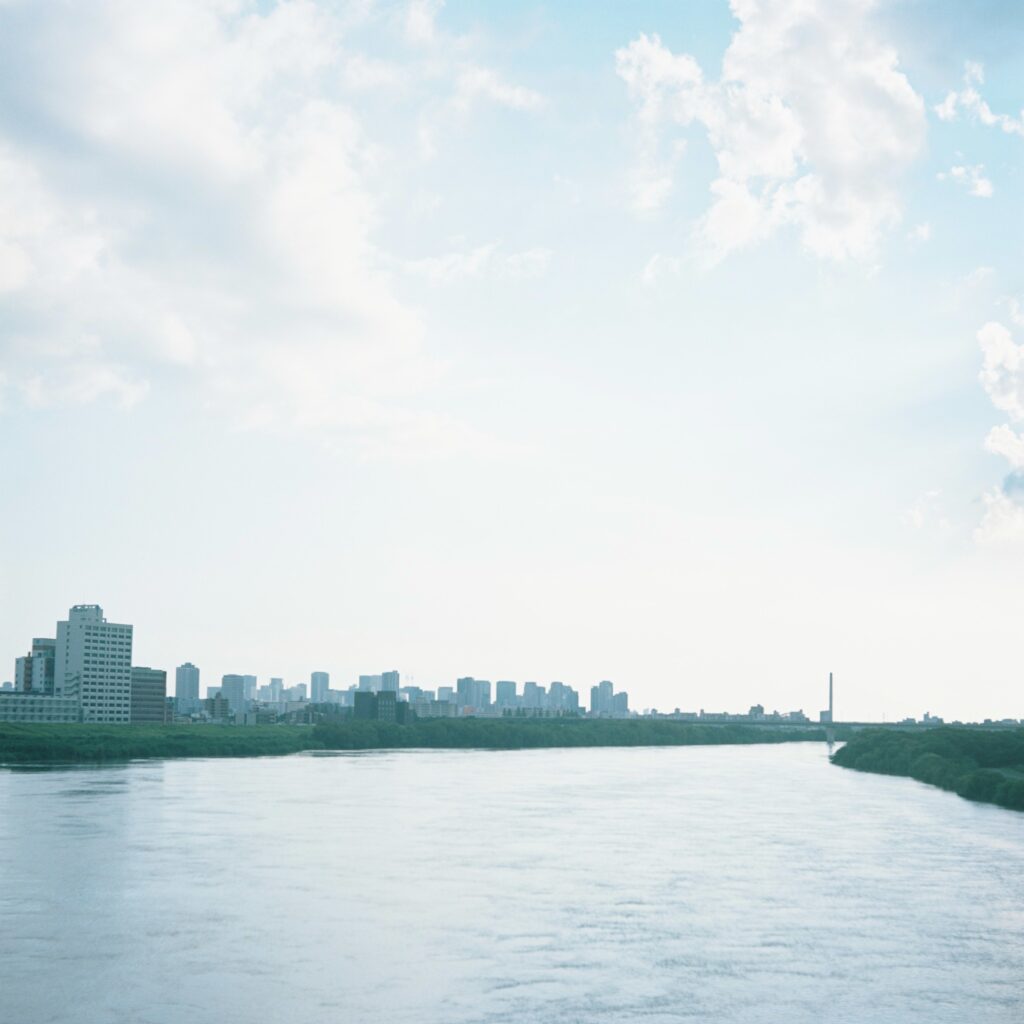
The Yodo River, a big river that flows through Osaka, is seen from a bridge
ピジャル・レリギアと綱本琴のおかげで
Thanks to Pijar Religia and Koto Tsunamoto